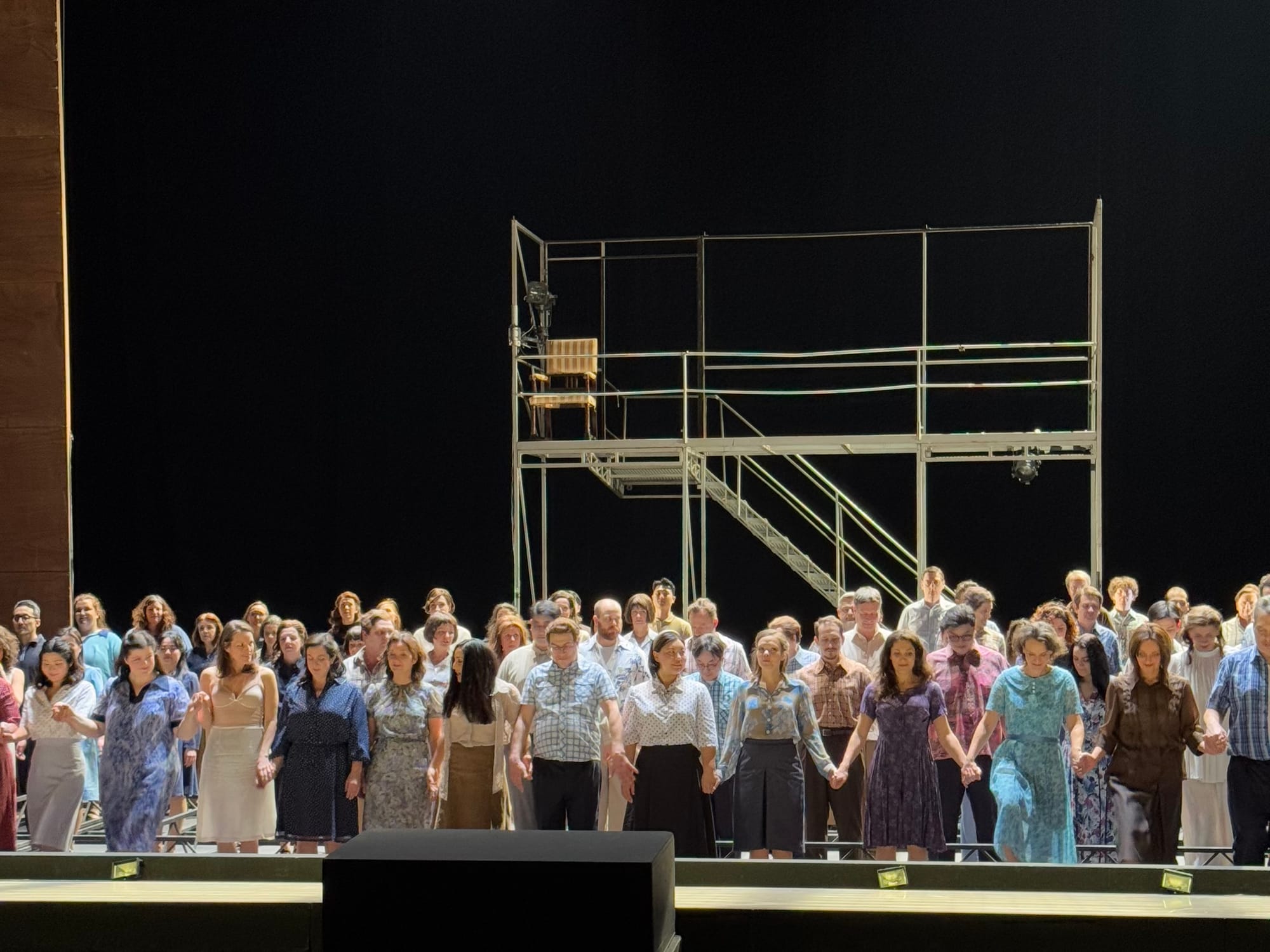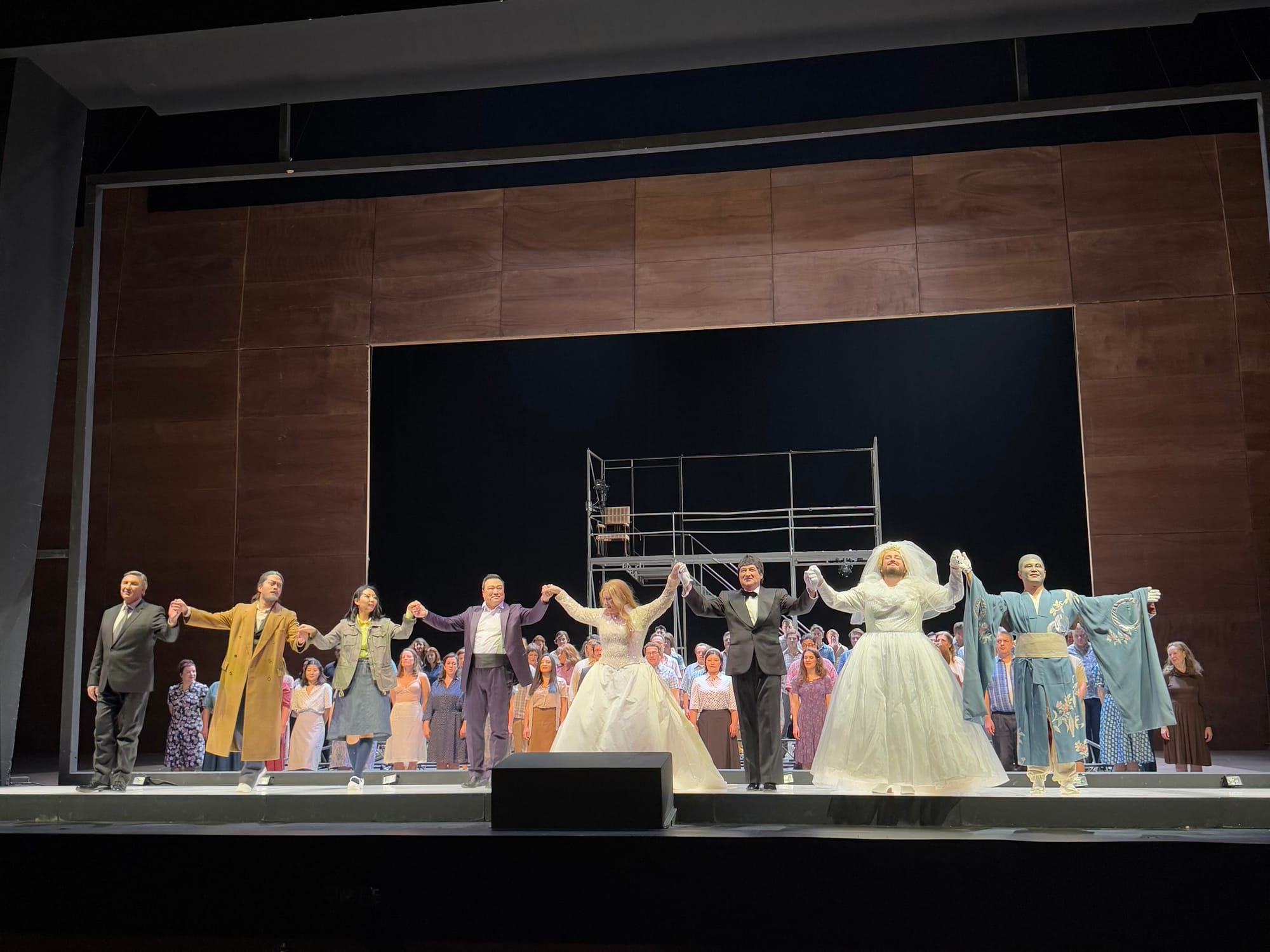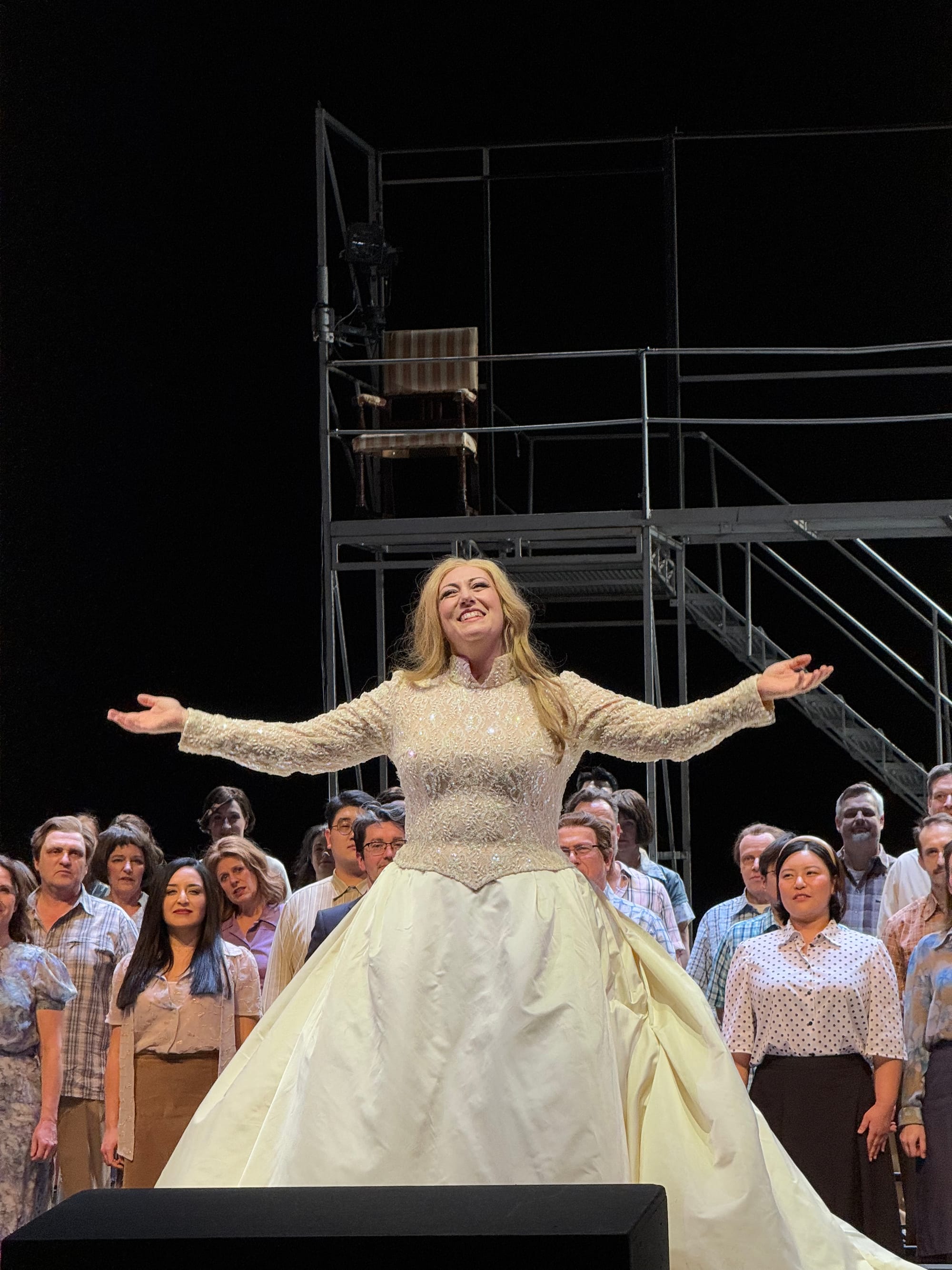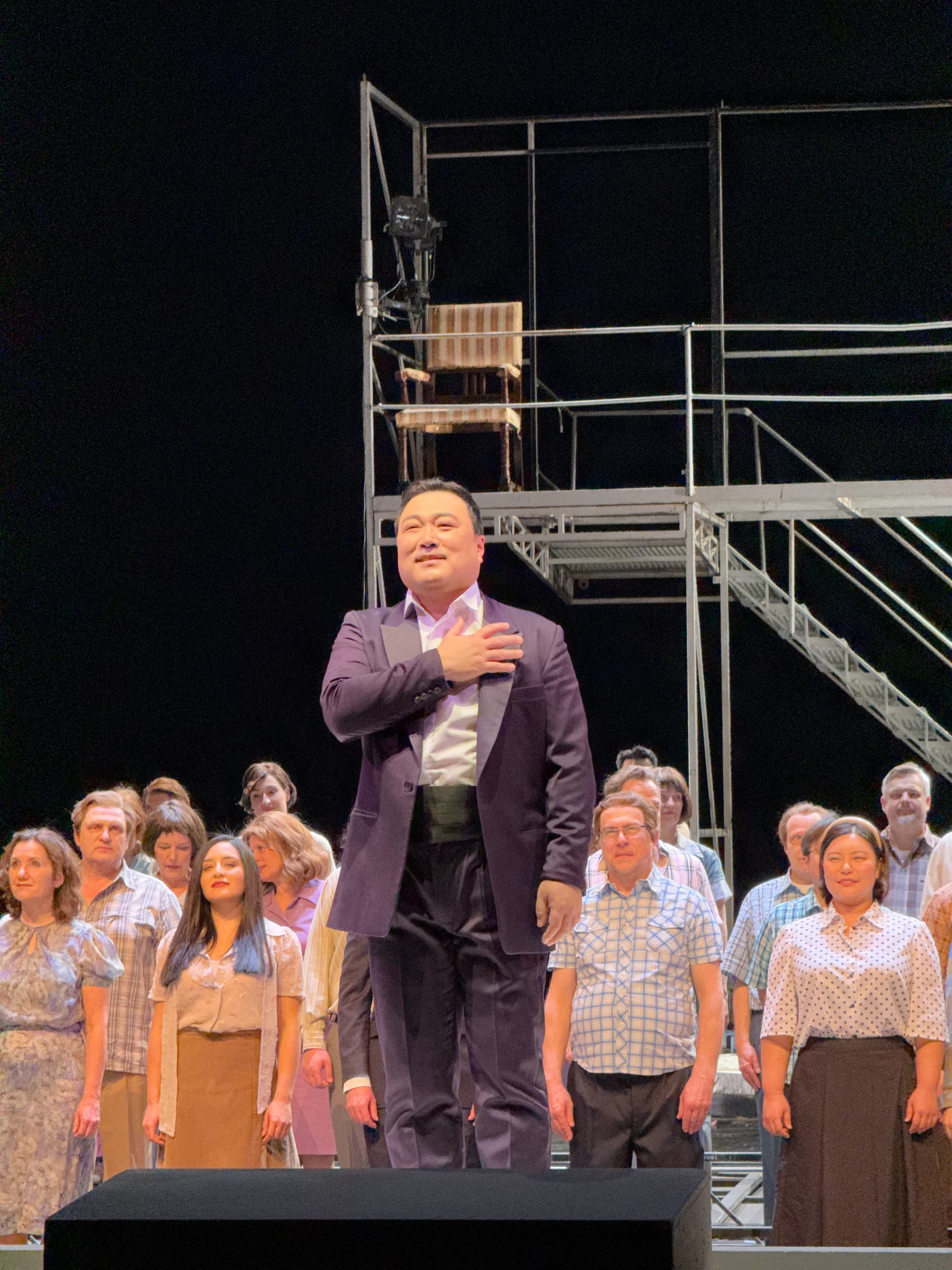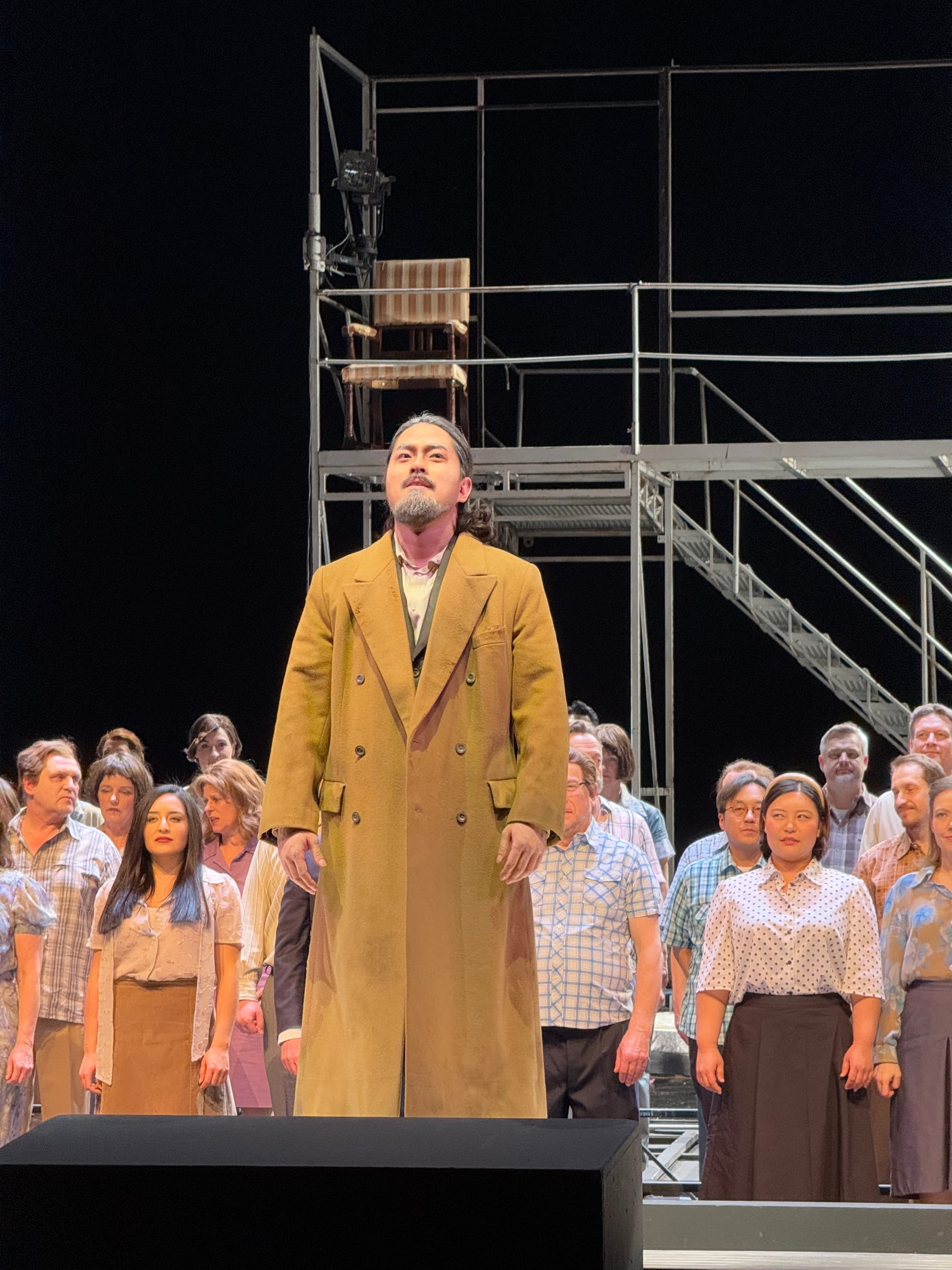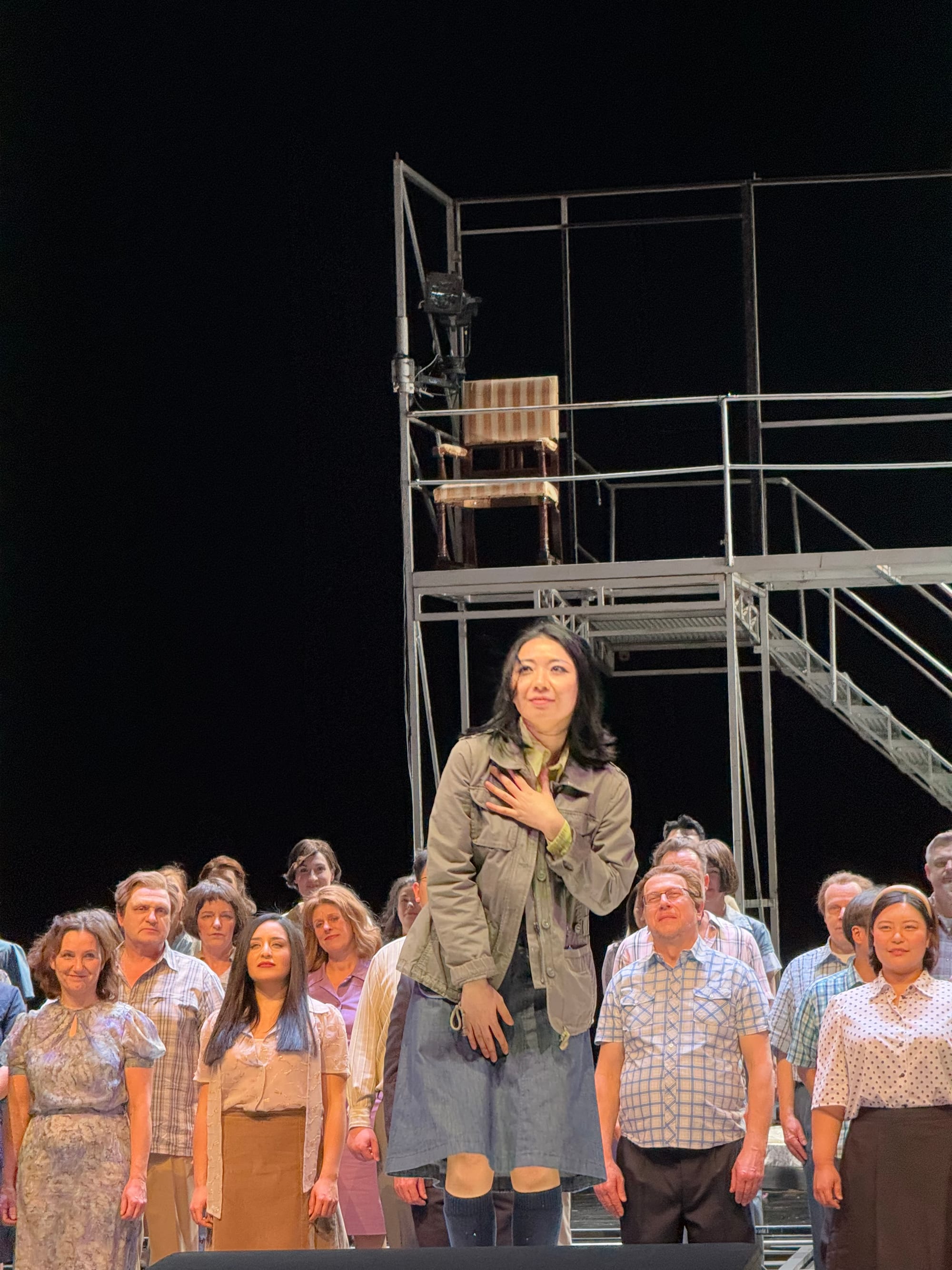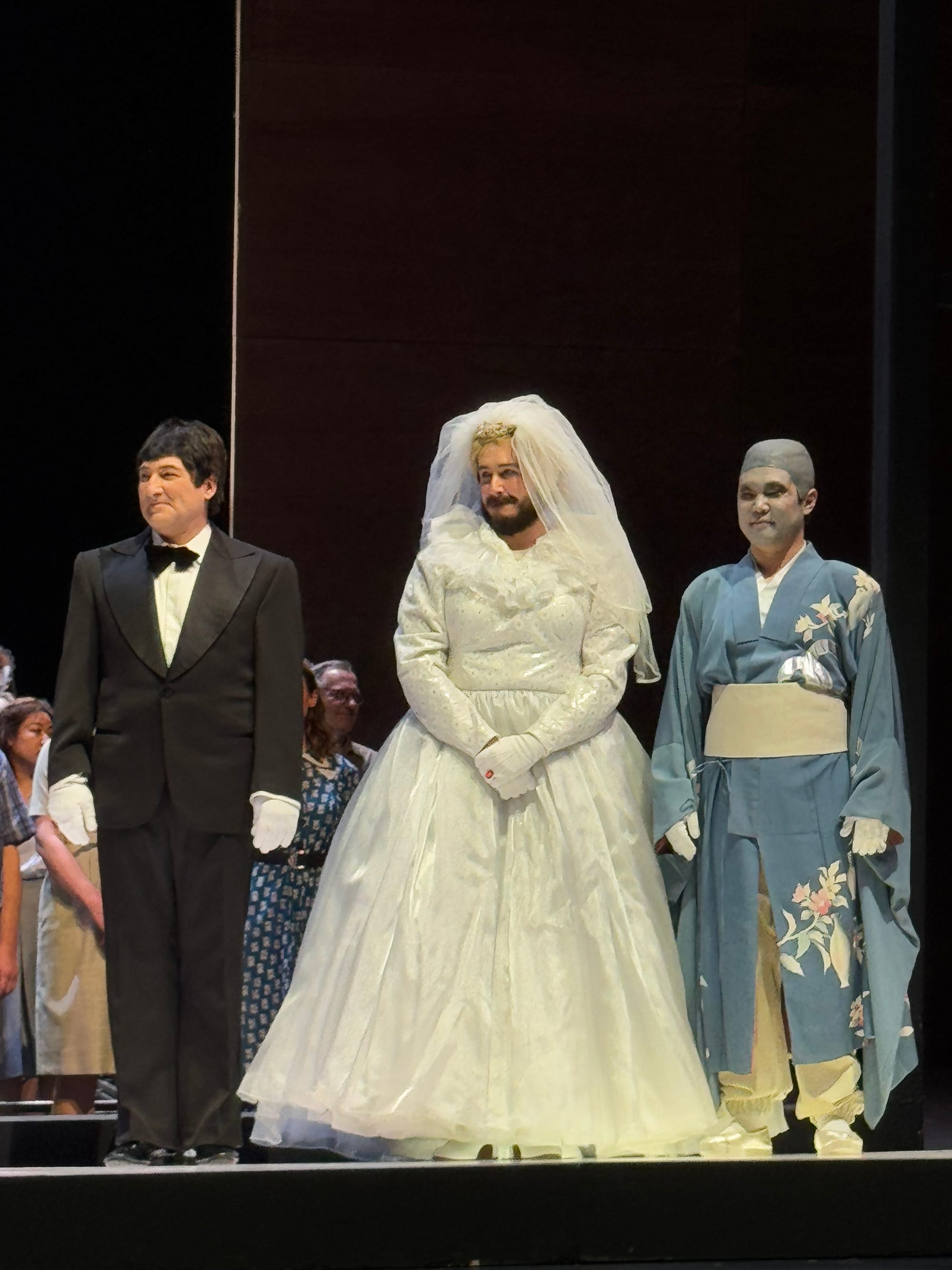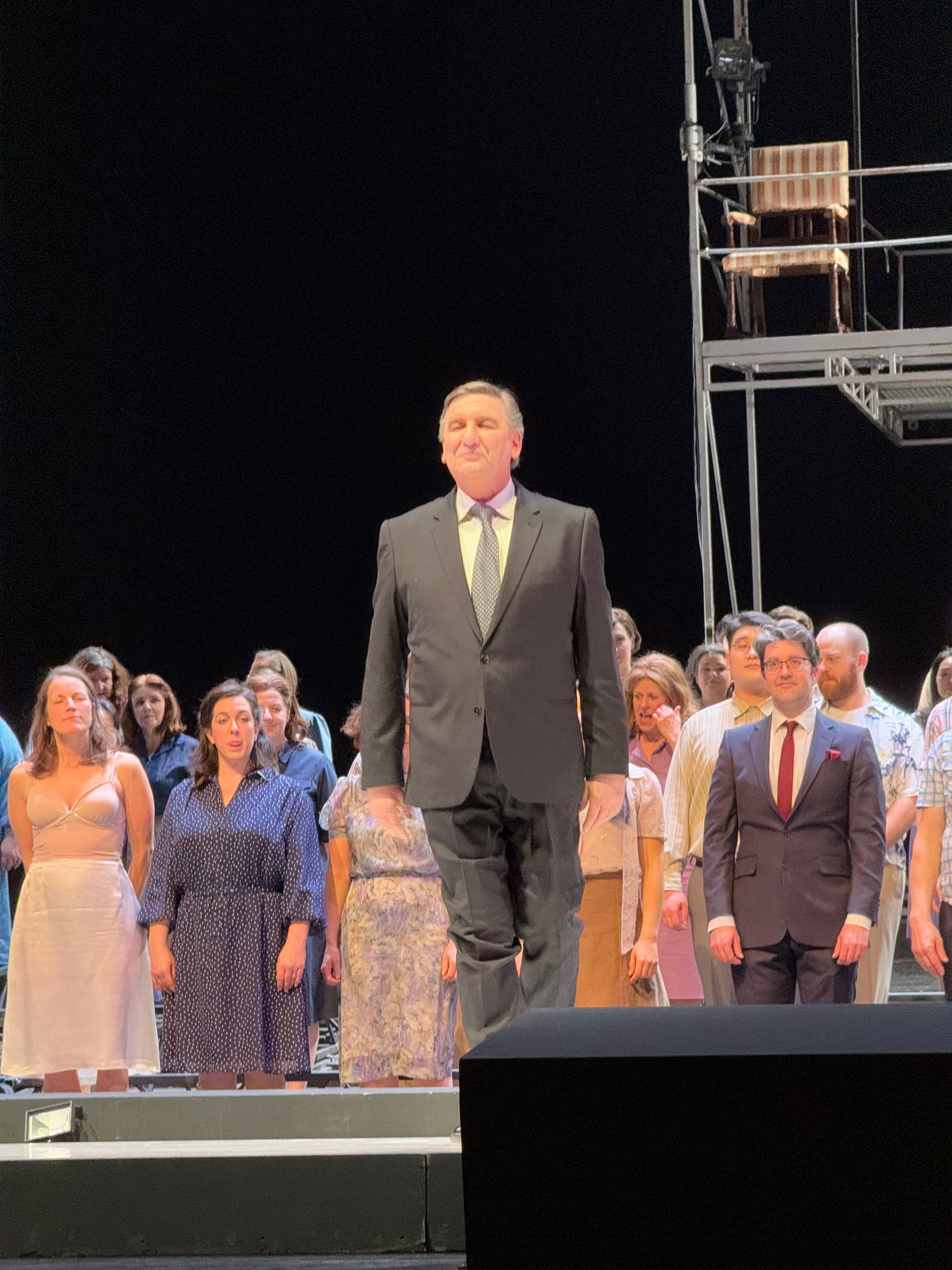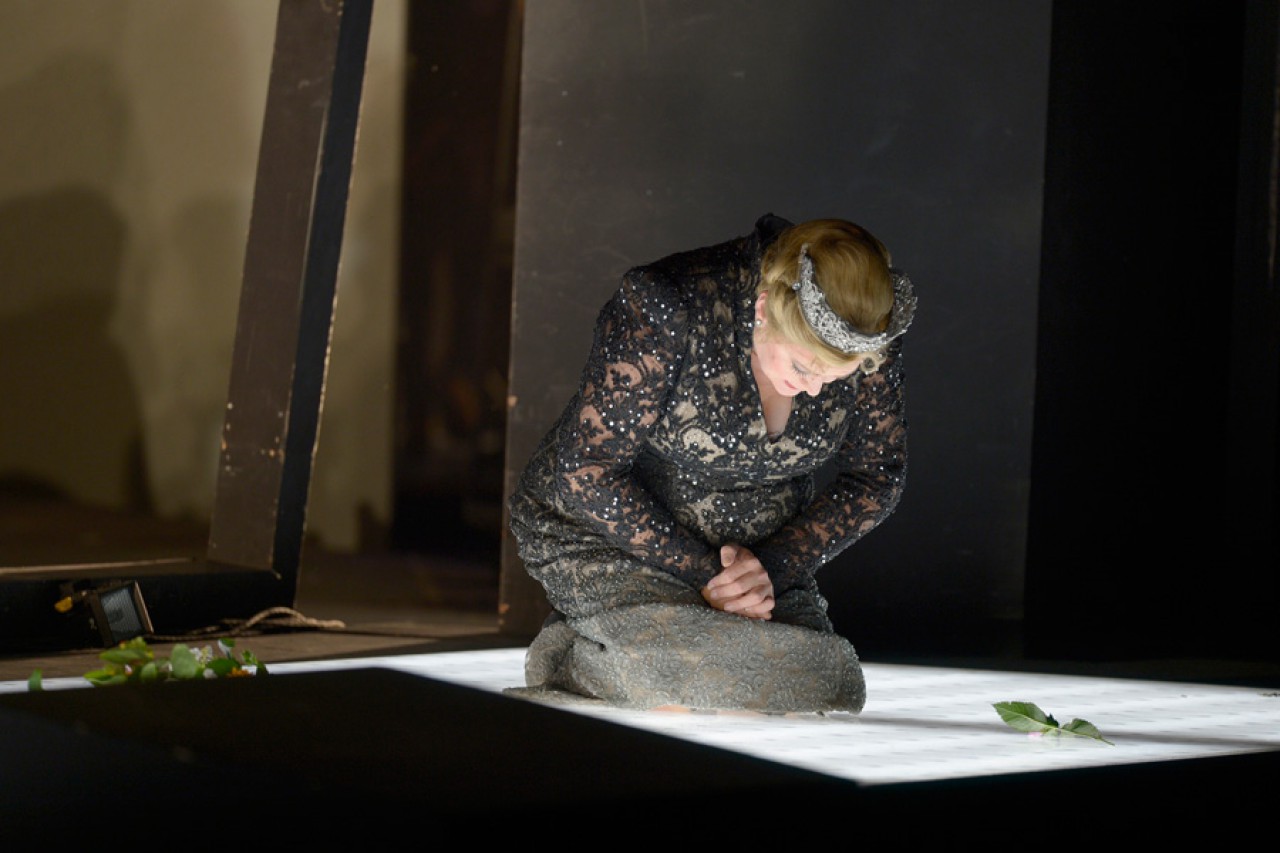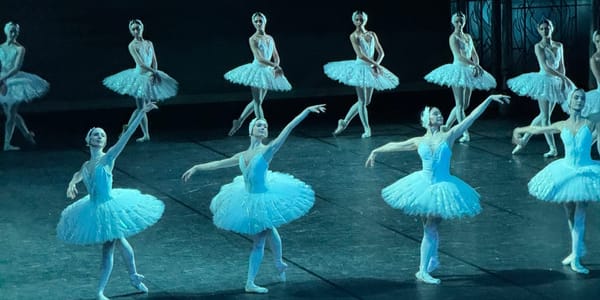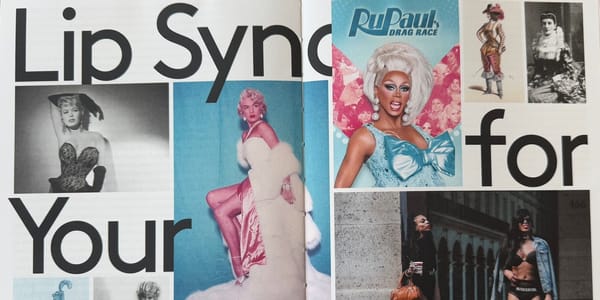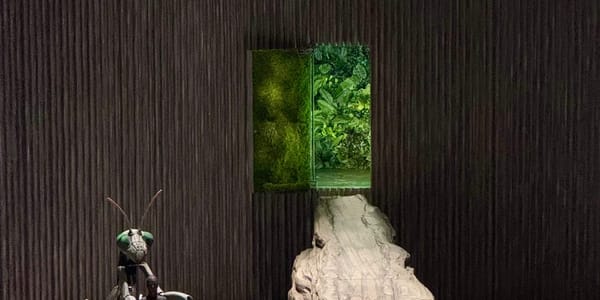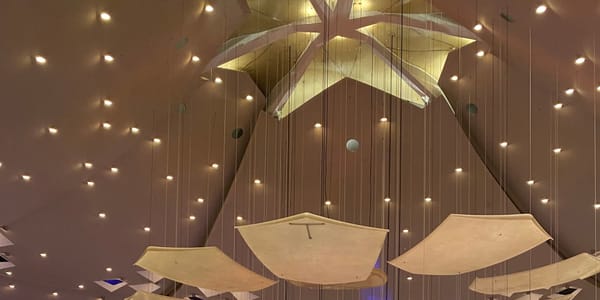Turandot at Deutsche Oper Berlin
By placing TURANDOT within a rigidly controlled dystopia—where press is restricted, police surveil the public, and dissent is crushed—the opera’s otherwise fantastical premise gains a sense of political logic.
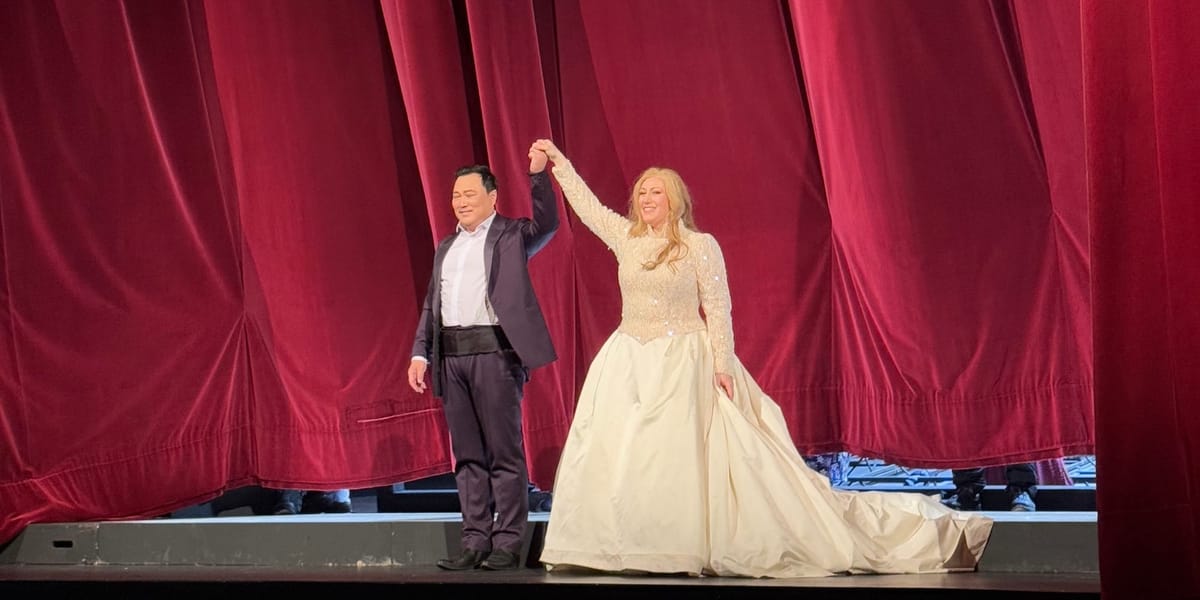
⭐️⭐️⭐️
🎭 Turandot
🎶 Giacomo Puccini
💭 Lorenzo Fioroni, 2008
🏛️ Deutsche Oper Berlin
🗓️ 07.02.2025
“WORK IS NEVER DULL FOR US WHERE TURANDOT REIGNS”
TURANDOT at Deutsche Oper Berlin heightens every aspect of the opera’s drama and transforms it into a grand spectacle of authoritarian power. Here, Turandot’s brutal marriage trials are not just personal whims but state-orchestrated performances, staged in a gilded theater complete with a royal box. A massive production crew—handling lighting, makeup, and logistics—ensures the ritual is flawlessly ~executed~, while an enraptured audience cheers on the deadly pageantry. Yet beneath this spectacle lies a chilling reality: not everyone is here voluntarily, and disobedience is met with swift oppression. The production masterfully frames Turandot’s ritual as a tool of political control—both a distraction for the masses and a method of instilling fear.
By placing TURANDOT within a rigidly controlled dystopia—where press is restricted, police surveil the public, and dissent is crushed—the opera’s otherwise fantastical premise gains a sense of political logic. This monarchy has weaponized a national myth, using the story of Turandot’s ancestor’s suffering as justification for these public executions. This framing helps rationalize a plot I have previously found difficult to follow.
In fact, when I saw TURANDOT in Beijing in 2013 (with the spectacular “unauthorized” ending by Chinese composer Hao Weiya which reintroduces the Turandot/Jasmine flower motive for the grand finale, rather than the “Nessun Dorma” theme), the program commentary was convinced that the whole world would be at war with China if the princess executes dozens of foreign princes each year. While opera might not demand geopolitical realism, this production provides a compelling explanation for how such a ritual could serve a regime’s interests.
A clever touch is the reimagining of Ping, Pang, and Pong: No longer bumbling ministers, they are actors, tasked with re-staging each failed suitor’s humiliation before the prince is paraded before the crowd—his beheading mercifully kept offstage. Their reluctant participation is telling; while they are complicit in maintaining the system, they also seem painfully aware of its cruelty. In one moment of dark humor, as they prepare for yet another performance, they contemplate hanging themselves to escape their roles. This production refuses to treat them as mere comic relief, instead positioning them as essential cogs in the machinery of a totalitarian state.
Yet, amid this ice cold political context, Turandot herself is not devoid of vulnerability. In a surprisingly moving moment, she embraces a doomed prince before his execution, a gesture of unsettling intimacy that hints at inner conflict. When Calaf solves the riddles and “wins” her, she is visibly devastated. Rather than a simple transformation from cruelty to love, her arc feels like a crisis of identity—her public persona and private emotions clashing in real-time.
This inner turmoil explodes in the production’s altered ending, which veers far from Puccini’s intended triumphant close. After Turandot and Calaf acknowledge their feelings for each other, the grand celebration takes a horrifying turn: together, each murders their father, before turning their knives on Ping, Pang, and Pong, who are once again dressed and ready to restage this very scene. Whether this is an act of liberation, a violent rejection of a patriarchal system, or simply a grotesque display of inherited brutality is left ambiguous. Are they tearing down an oppressive order, or simply perpetuating its cycle with new figures at the top? The production offers no clear answer, but it forces us to reconsider TURANDOT’s resolution in a way that is both shocking and thought-provoking. If anyone has a better theory, I’m all ears.
By blending operatic grandeur with sharp political commentary, this TURANDOT turns Puccini’s final work into something more than just spectacle—it becomes a meditation on power, complicity, and the myths that sustain authoritarian rule. It is both thrilling and unsettling, a production that doesn’t just stage TURANDOT but ~interrogates~ it, making us question the very foundations of its world.
